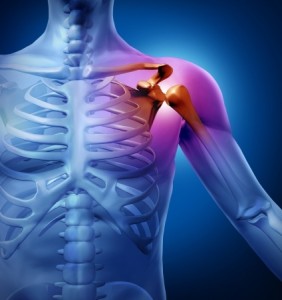 “Hey Doc, how come you’re prescribing antibiotics for me prior to dental work, when my dentist told me that is an old practice?”
“Hey Doc, how come you’re prescribing antibiotics for me prior to dental work, when my dentist told me that is an old practice?”
The use of antibiotics as prophylaxis, disease prevention agent, prior to dental work on patients after a total joint replacement (TJR), has been an issue of confusion among patients, doctors and dentists. Traditionally, orthopedic surgeons recommend coverage with antibiotics to prevent prosthetic joint infection (PJI). The concept is to counteract the introduction of bacteria when it enters the blood stream or Bacteremia. The incidence of PJI is between 1% to 3% depending on the type of study you read. PJI can be very devastating if it occurs and may lead to loss of limb or life.
In 2003, the American Dental Association (ADA), and the American Academy of Orthopedic Surgeons (AAOS) had a conference on the issue and made a recommendation to use antibiotic prophylaxis for 2 years following a total joint replacement. It was to be given orally or intravenously, within 1 hour of the procedure.
In 2009, The AAOS changed the 2003 recommendation stating that the coverage should be lifetime. Because of the concern of the medical community regarding resurgence of antibiotic resistant organisms, and because evidence based medicine showed lack of correlation between bacteria found in the mouth and bacteria that is commonly gown in PJI, another meeting was convened.
The common organisms found in PJI are Staphylococcus Aureus, MRSA and Staphylococcus Epidermidis. These organisms are not commonly found in the mouth.
In 2012, the ADA and AAOS, together with epidemiologist and infectious disease specialists, met again and came out with the following recommendation, “the practitioner might consider discontinuing the practice of prescribing prophylactic antibiotics.” The statement seems to be inconclusive and weak, leaving the decision upon the dentist, orthopedist and confused patient.
How did I resolve the issue?
My patient happens to have Rheumatoid Arthritis and Type I Diabetes, definitely a high risk for infection of any kind, any source. If I advised no antibiotic prophylaxis and he got infected, there is no evidenced based medicine type of explanation I can give to this patient that will sound credible to him.
All he knows is he got infected because the two professionals he relied upon failed him. He is high risk to begin with and should be covered from wherever the bacteremia will come from. A single dose of Cephalexin will not cause havoc to his bacterial flora.
My further recommendations for prophylaxis, dental or otherwise (Minor or Major surgeries, biopsies, colonoscopy or any procedure that may draw blood) would be, coverage if you belong to this group:
A. Immunocompromised/immunosuppressed, including: Inflammatory arthropathies: Rheumatoid Arthritis (RA), Systemic Lupus Erythematosus (SLE, Lupus), drug or radiation induced immunosuppression
B. Other high-risk patients:
Type 1 Diabetes
Prior PJI
Malnourished state (post TJR)
Hemophilia
First 2 years following TJR, (again empirical and not evidence based)
Suggested antibiotic regimen: Cephalexin1 gram, Amoxillin 2 grams 1 hour prior to procedure, can be given intravenously.
Penicillin allergy: Clindamycin 600 mg orally 1 hour prior to the procedure.
No second dose recommended even if the procedure is prolonged.
Manuel T Banzon MD FAAOS
04/29/2015







